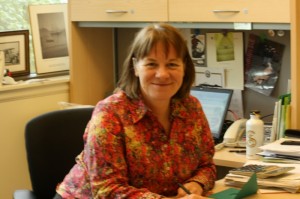A new program will grant BC students easier and inexpensive access to their textbooks. Under the new open textbook program, which could be implemented as early as September, postsecondary students in select courses will be able to read their texts online, download them for free, and print them for a fraction of the price of a physical copy.
In October, Minister of Advanced Education, Innovation and Technology John Yap announced the new program for 40 high-enrollment and high-impact first- and second-year postsecondary courses. Close to 200,000 BC students could benefit from this project, each saving hundreds of dollars on textbooks annually.

BCcampus, a publicly funded organization that aims to make higher education available to everyone through the use of collaborative information technology services, will coordinate the new textbooks project.
The BCcampus Strategic Council has chosen 16 representatives to serve on its open textbook subcommittee. Among them is Camosun College librarian Sybil Harrison, who believes the program will save students money.
“The whole open textbook initiative is about reducing costs and opening up access and we want to take away the payment wall as a barrier,” says Harrison. “To produce these textbooks, there are costs involved, but at the point of the user accessing the material, payment is not a barrier. And that, fundamentally, is what open publishing is about.”
According to Harrison, savings aren’t the only benefit to the textbook program.
“It opens up the door to some really exciting possibilities,” she says. “It really takes advantage of the digital environment in different ways of publishing and there’s an opportunity that textbooks will be more than just textbooks, and integrating other content.”
Some Camosun students support the idea of an open textbook program, mainly due to cost savings and the utilization of technology.
“We talk a lot about iPads, tablets, and things, and putting all your books on there, and everyone has those. I just took three classes and I had to pay something like $400 for books. So I think it’s a good idea,” says physics student Nathan Linford.
Criminal justice student Ashley Johns agrees. “It would be pretty sweet if textbooks were free. They’re definitely a huge cost, especially with tuition.”
Madeline Keller-MacLeod, external affairs executive of the Camosun College Student Society, says the student group also likes the new program.
“Anything that’s going to save students money is going to increase access to education and it’s obviously something we support,” says Keller-MacLeod. “It’s a great tool, but I think the only problem may be getting teachers to use it. New technology might take some time to get over.”
Presently, the project is in the beginning phases and only available for first- and second-year courses in the United States, mainly California and Washington. BC hopes to start the program as early as September.
According to Tori Klassen, BCcampus director of communications, the program faces a few hurdles. First, only a handful of courses in BC can utilize this new program and secondly, the concept of open source textbooks itself is still premature.
“We’ve got some funding from the provincial government to target 40 courses. Out of all the courses in postsecondary institutions, 40 is not a lot,” says Klassen. “However, we’re following the footsteps of some initiatives that are already happening in Washington and California. As a matter of fact, we will be getting together with our colleagues in those states to see where we can work together.”
Since open textbooks are digital and open source, instructors will be able to find content that matches their subject and make any needed adjustments to effectively integrate the material into their own classes.
“If they have a textbook in one area already, then we don’t need to rewrite the textbook because they’re licensed with creative commons and free to use,” says Klassen. “We can take and adapt them to a BC perspective and vice-versa.”
